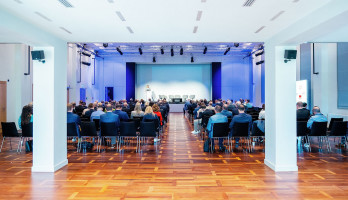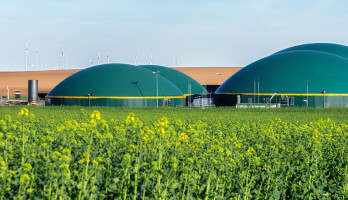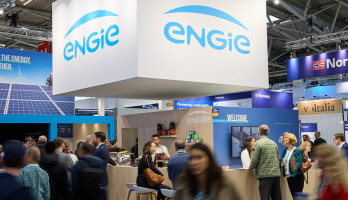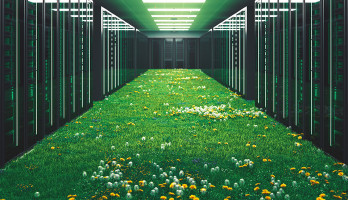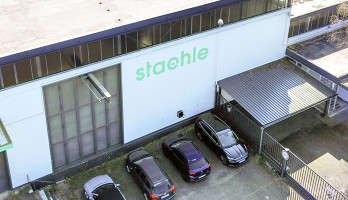
Effects of the Corona crisis on Germany's economy and industry – an chance for the climate?
The Corona crisis has already left deep traces in economic, social and cultural terms. Companies were suddenly faced with the challenge of implementing large-scale transformations in the shortest possible time, which had until now been rather theoretically envisaged. Whether agile work processes, digitalization or the return to regional production: In many areas, the Covid-19 pandemic is a motor for change, which could ultimately even promote the energy transition.
Agility: The key word of the management consultants becomes an ad hoc challenge
For some companies, it was little more than an attractive buzzword for a long time, but with the Corona crisis, it suddenly became necessary: agile working as the order of the day. In times of crisis like this, agility can prove to be an economic survival factor. Those who manage to adapt flexibly to new situations, quickly throw away stationary working methods and change structures as required, can cross troubled waters more easily than companies in which even small changes are associated with long decision-making processes and a high level of organizational effort.
Proving agility in the crisis means spontaneously adapting the work routines in the company to the new requirements. Due to the contact restrictions in the Covid 19 crisis, numerous companies had to advance their own digital transformation in the shortest possible time, implement innovative technical solutions and develop a new working culture. But in many cases the changes demanded by the situation were even more drastic: Representatives of various industries were forced to adapt their production ad hoc – and some of them have done so in an exemplary manner. For example, textile companies such as Trigema and Schiesser have switched their production in parts to the production of mouth-nose coverings. The manufacturer of microphone stands Koenig &Meyer started to produce disinfectant holders.
Security of supply of critical infrastructure in the Covid-19 crisis
Certain sectors are facing particularly serious challenges in the extreme situation of the corona crisis. This applies in particular to what are called systemically important professions, which are particularly indispensable in the event of a disaster. In addition to medical personnel, in particular food retailers, energy suppliers, the waste and waste management industry, water companies and a few more are among them. The problem with these professions is that on-site presence is absolutely necessary, at least temporarily. At the same time, the employees must be prevented from being endangered. If an infection event leads to a failure of system-relevant personnel, as in the case of Covid-19, the consequences for the entire community would be fatal.
But how can the balancing act of social distance and work be maintained on the spot – or even on the human being? Companies and organizations must not only provide their employees with effective protective equipment, but also develop a strategy for maintaining security of supply despite adverse circumstances. The Berlin water companies provided a good example of such a strategy. During the Corona crisis, the IT system was adapted in such a way that part of the workforce could always be "in reserve" at home. For future crises that could be accompanied by climate change, the water companies are working together with the Land of Berlin to develop different strategies that are intended to ensure the supply of the city in the long term, for example by upgrading the sewage treatment plants and investing in the water and intermediate pump plants.
Lockdown & home office promotes digital progress of companies
Wars, epidemics or famines: Crisis times have always presented mankind with special challenges that demand new solutions. As a result, crises often go hand in hand with social and technological innovation. This also applies to the Corona period: With a remarkable responsiveness, many companies have adapted to the situation and have switched to digital work processes and virtual forms of cooperation within a very short time. Much of this will surely survive after Covid-19. The sudden digital transformation of companies has long-term effects on the climate. For example, the general increase in acceptance of remote work – work in the home office – could help to reduce traffic in cities, reduce CO2 emissions and thus provide lasting relief for the environment.
Returning value chains to your country?
The global lockdown in the Corona crisis broke through international supply chains and temporarily forced global trade to a halt. Car manufacturers were short of important parts, bringing production to a standstill in some cases. The pharmaceutical industry was also affected by worrying supply problems. Since many common medicines are now produced in countries such as China and India, disruption of supply chains means a high risk for the medical care of Germany. This is increasingly prompting calls for production sites to be relocated back to the home country. However, it is also clear that the diverse global dependencies cannot be resolved overnight. After all, the Covid-19 crisis provides a stimulus for rethinking, the effects of which may only become apparent in a few years.
Trend towards regional production
The desire for a regional supply was particularly acute in the food industry. For example, farm shops and organic farmers are currently experiencing increased demand for regional and seasonal food. Consumers are increasingly interested in the local and therefore climate-friendly origin of their food. This ecological-ethical trend, which has already been emerging for a few years, has been given a significant boost by the Corona crisis. It has great sustainable potential to save significant amounts of CO2 emissions in the future.
Short and long-term effects of the Corona crisis on the climate
The long-term effects of the Corona crisis on the climate are not yet conclusive. In the short term, global emissions of greenhouse gases fell noticeably during the lockdown period. Airplanes stayed on the ground, factories stopped and freight traffic was restricted. Due to the Corona crisis, Germany can probably still achieve its climate targets in 2020. CO2 emissions are lower than they have been for ten years. However, in order to reduce emissions in a sustainable manner, an emergency situation lasting several months is not enough. The underlying structures of all areas of life would have to be adapted in order to have a truly measurable effect. At the same time, there are many fears that investments in climate protection programs could be scaled back precisely because of the economically sensitive situation.
Economic slump and stimulus packages – an opportunity for the energy transition?
The economic stimulus package passed by the Federal Government in June 2020, however, provides an optimistic signal. The agreement covers a whole range of climate and energy transition objectives. For example, it stipulates that the CO2 building renovation program and the support programs for the energy renovation of municipal buildings should be significantly increased. In addition, the economic policy measures may have various synergies that benefit climate protection and sustainable economic development. In the general modernization push triggered by the crisis, which runs through a wide range of industries, lies the potential to realize sustainable value chains that are fit for the future.
Here's what we can take away from the Corona crisis
Certainly not all the effects of the Corona crisis mentioned will have a direct positive effect on the climate. Nevertheless, the Covid-19 pandemic has revealed a wide range of areas where we can act more quickly and with greater agility than we previously thought possible. If companies make the right decisions now, i.e. make targeted investments, and use the incentives set by policymakers wisely, then climate protection and the energy transition can receive a decisive boost.
Our Expert

